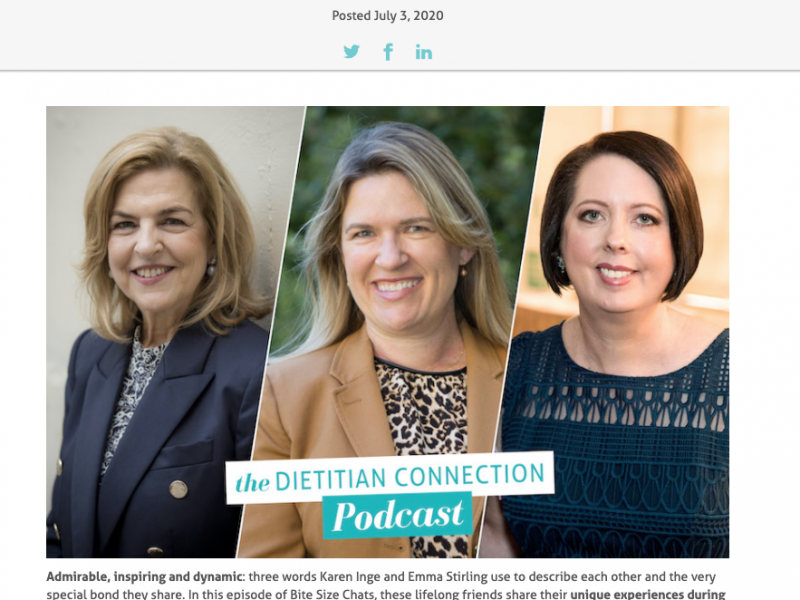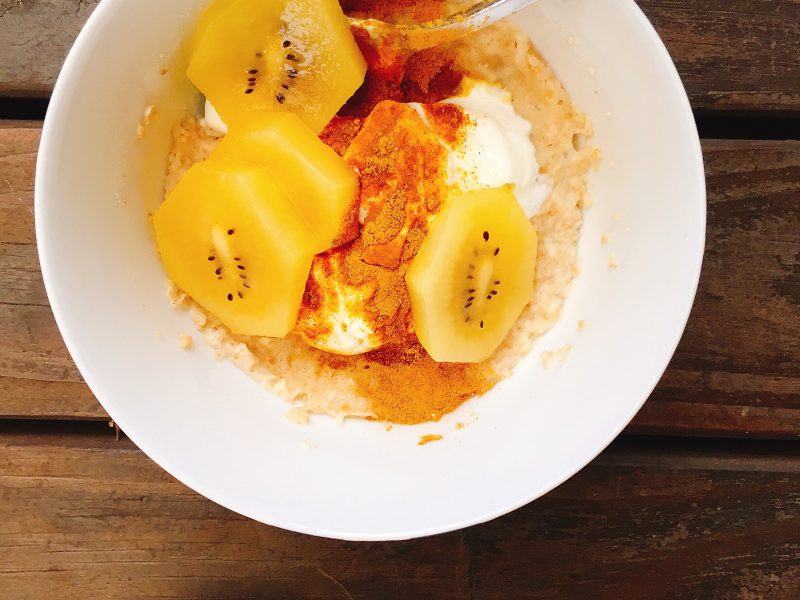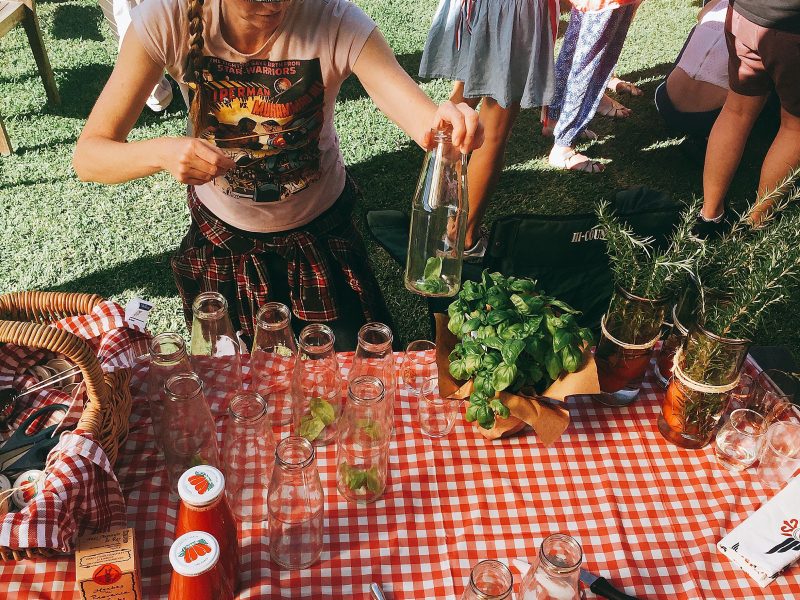Typewriters, flares, Jatz crackers and pickled onions. I’m a child of the 70’s. And I absolutely loved watching Paper Giants on ABC1. Just as Ita Buttrose paved the way for powerful, working women, dietitian Rosemary Stanton pioneered nutrition writing and work with the media for people like me. Thirty nine years ago, with a firm foot still at the Health Department, she used her strong writing skills to sex up nutrition for Cleo. We caught up with Rosemary to get the scoop on the early days at this controversial women’s magazine and how to pick a credible, nutrition article.
Dr Rosemary Stanton OAM needs no introduction for Australian audiences. She has been advocating for nutrition and appearing in our media for decades. Now semi-retired from paid work, she tries (unsuccessfully) to restrict her work life to 9am-5pm and only comments and publishes a few hundred times a week. She is passionate about food quality and the environment and can be found gardening with the grandchildren, in her (ahem) spare time.
Rosemary, did you enjoy watching Paper Giants?
Yes, I did. The program was like a blast from the past for me, as I remember all the characters quite well. The portrayals were spot on. I wrote for every issue for over 15 years and moved with Ita to other magazines as well as continuing my Cleo involvement. Although I had written for local papers (through the NSW Health Dept), it was Cleo that really put nutrition on the map. My monthly articles would lead into day-time TV interviews (like the Mike Walsh show) and everything else went from that. I subsequently worked as a presenter on “Burke’s Backyard” for ten years. I never had to look for any work – it all found me. It was a different age.
 Many of our readers can’t remember a time without computers, how did you work before the digital age?
Many of our readers can’t remember a time without computers, how did you work before the digital age?
Typewriters and snail mail of course. We spent almost a year in Europe in 1979-80 as a family, which awakened my interest in the Mediterranean Diet. Although I left a few months’ copy before we flew out, I was always on the lookout for a typewriter to do articles when I was away. A friend we stayed with in Switzerland had an old typewriter that punched holes in every ‘o’. I’d post off copy and everyone coped quite well – they could even cope with hand-written copy if necessary.
Ita talks about Cleo creating the legacy of the superwoman, but it was typical for women to be housewives in the early 1970’s. How did you juggle work and family life with four kids?
We had our first three children in fairly close succession. I had assumed I would stay at home until all my children went to school. I lasted six months before somebody rang up and said, “Could I come and do 10 nurses’ lectures?”. So I took the baby and went off. Peter, my husband, built me a separate office above the garage which was delightful and meant I was able to work from home. My boss at the Health Department was an amazingly enlightened man who allowed me first to work through my first pregnancy (it was the 60’s and you were expected to leave if pregnant) and then to write their pamphlets and booklets from home over the following years. I was also involved in running pre-natal classes to which I would take my baby.

Images source: Paper Giants
Your magazine writing led to your books. I’ve just pulled my copy of The Diet Dilemma off the shelf and can’t believe that you wrote it 20years ago. It’s still so current. The dodgy, fad diets are the same today, they’ve only changed their names. Tell us about your first recipe books?
I did some work in the early ’70s on the Henderson Poverty Inquiry. I went around seeing people who had a very different life from mine. I discovered that most of them didn’t know how to cook. And so although I’d been trained in biochemistry and science and was talking about the science of nutrition, I decided that what I really needed to do was teach people how to cook. So I started writing recipe books. Some of my colleagues at the time were quite scathing, believing I was downgrading the status of dietitians – and now look at the plethora of healthy recipe titles and cooking shows where dietitians are involved.
You’ve always been very strong about sound science and nutrition by looking to the evidence base. What are your tips to help our readers and dietitians spot or prepare credible nutrition advice in the media?
Check the affiliations of all authors and take any potential conflict of interest into consideration (COI). COI will not be listed on the published abstract of a study but still needs careful checking. Always read the full study. The writers qualifications are important too. Not everyone involved in medicine or writing about nutrition knows a lot about the topic! Watch out for an isolated study and check whether the study has been published in a quality peer-reviewed journal. Conference presentations don’t really count! Don’t assume that just because someone says something is statistically significant that it really is. A course in statistics is extremely valuable and short courses in medical stats are available. Always do your homework before talking to journalists or doing TV or radio talks on any topic. If you don’t know something, you can say so.
Editor’s comment:
Thank you so much Rosemary. As a freelance writer for ACP magazines and nutrition consultant, I’ve spent my time at Park St now too. I’m going to open up for questions and comments . Did you watch and love the show readers? If you missed the 2 part series you can iview it here. I bet someone is just dying to know how those first male centrefolds went down in your extended family, Rosemary.



